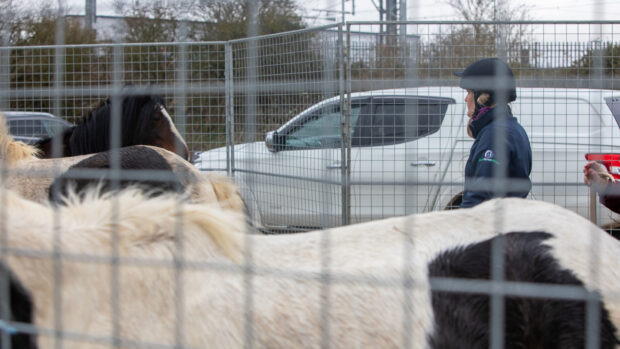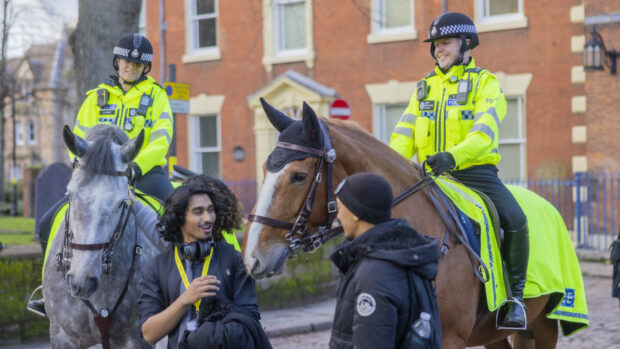The Government’s “action plan for animal welfare” – including a proposed ban on live exports for slaughter and new legislation on livestock worrying – was introduced in parliament this week.
The plans come under the new Animal Welfare (Kept Animals) Bill which had its first reading on Tuesday (8 June). If the Bill is successful, the UK will become the first European country to end the practice of live exports for slaughter. The new legislation will also give new powers to the police to provide greater protection to livestock, including horses, from dangerous and out-of-control dogs.
Improving welfare during transport for equines destined for slaughter is the founding issue of World Horse Welfare and the charity welcomes the Government’s plans.
“Where equines are to be slaughtered, we believe this should happen as close to their point of origin as possible,” said World Horse Welfare chief executive Roly Owers.
“By their very nature, equines transported to slaughter may be more susceptible to health and welfare risks on long journeys. For this reason, a ban on movements for slaughter out of Great Britain is excellent news.”
But Mr Owers added that “in reality”, nothing will change until a fully digitised system of equine identification and traceability of horse movement is in place.
“There have been no declarations of equines being exported for slaughter from Great Britain for many years, but horses and ponies are exported for a variety of reasons and there is no way to guarantee that a horse declared as being exported for another purpose will not go directly for meat,” he said.
“Until there is full traceability within and outside of the UK it is not possible to know where exported horses end up.”
A spokesman for the charity added that many equines transported under the radar are also not being declared as commercial movements.
“This means some transporters are not complying with welfare during transport legislation, which applies only to commercial transporters, and equines are being transported long distances in often cramped conditions,” said the spokesman.
“An effective and reliable equine ID and traceability system is vital to help tackle the grey area of transporters falsely identifying as not for slaughter or not commercial slipping under the radar at border crossings. Appropriate checks and the resources available to undertake them are also needed to enable the new legislation to be enforceable.”
Continued below…

‘Cancel out cruelty once and for all’: tougher sentences for animal abusers made law four years on
“This reform is long overdue – for many years, the most violent and horrific abuse and cruelty received a maximum

‘Once in a generation‘ opportunity in fight against long-distance transport for slaughter

Subscribe to Horse & Hound magazine today – and enjoy unlimited website access all year round
The spokesman said the charity also welcomes the plans relating to livestock worrying of animals in England and Wales.
“Attacks on horses by out-of-control dogs is a worrying problem for owners and riders, and the new legislation will confer additional powers on the police, allowing them to identify owners and their animals and take action. The legislation includes more than what is traditionally considered as agricultural land, so covers horses grazing in a variety of situations, such as on allotments, or on roads and paths, which is a positive development for equines and their riders when out hacking,” he said.
“The Bill will now require further readings in parliament before being set into law. Further bills based on the government’s action plan for animal welfare are expected in the coming months.”
Horse & Hound magazine, out every Thursday, is packed with all the latest news and reports, as well as interviews, specials, nostalgia, vet and training advice. Find how you can enjoy the magazine delivered to your door every week, plus options to upgrade to access our H&H Plus online service which brings you breaking news as it happens as well as other benefits.



